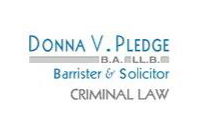According to the Criminal Code of Canada section 343, anyone who commits robbery is guilty and liable of an indictable offence. Robbery refers to stealing an item with use of violence. Violence such as snatch, physical abuse, or use of a firearm is the difference between robbery charges and theft or shoplifting offences.
Section 344 of the Criminal Code of Canada outlines the possible penalties associated with a robbery conviction. For example, a minimum of four years to a maximum of life imprisonment when there was a firearm used in the commission of the offence.
Other circumstances may lead to a range of sentences, including a sentence of life in prison.
Defending Against Robbery Charges
Robbery charges vary depending on the facts and circumstances of the case. For instance, your lawyer may choose to attack the intent element of a robbery charge. A client is required to have intent to rob the alleged victim. The following are other possible defences to robbery charges:
Identification
The Crown is required to prove that the accused actually was the one who committed the offence. The Crown may use eye witnesses and/ or video surveillance to establish the accused was at the scene of the crime. However, a lawyer will challenge the alleged evidence to prove that it could not, beyond a reasonable doubt, be the defendant.
The Detained Defense
Articulable cause is needed to stop the accused. In other words, the police must have reasonable suspicion that an individual committed a crime such as robbery to detain him or her. A mere hunch based on an officer’s intuition is not articulable cause. Thus, a lawyer may use this defense if their client was detained without cause and prior to the alleged stolen items being found.
Unreasonable Seizure or Search
Again, the police must have articulable cause to search the accused and/or his belongings. It is against Canadian law to allow police to look through a person’s belongings without having reason to believe, based on facts, that he or she committed robbery. If police do not have reasonable cause and search and/or take items, it is illegal. Any alleged evidence may not be introduced into trail if a Toronto criminal lawyer can prove that it was taken illegally.
Denied Right to Counsel
An accused has the right to a lawyer without delay when arrested for robbery. The individual must also be told of this right. Any time police do not explain this right to an accused, it is a violation of law.
Right to Make a Full Answer
The Charter allows a person accused of a crime such as robbery to obtain from the Crown information that would affect his or her defence. This includes surveillance video and witness statements.
A robbery offence is serious. If you or a loved one is charged with this offence, contact Toronto criminal lawyer Donna V. Pledge. You deserve the best defense possible, and Donna V. Pledge has a long track record in successfully defending clients accused of offences such as robbery. To schedule a free consultation, contact Donna’s Criminal Toronto office.




